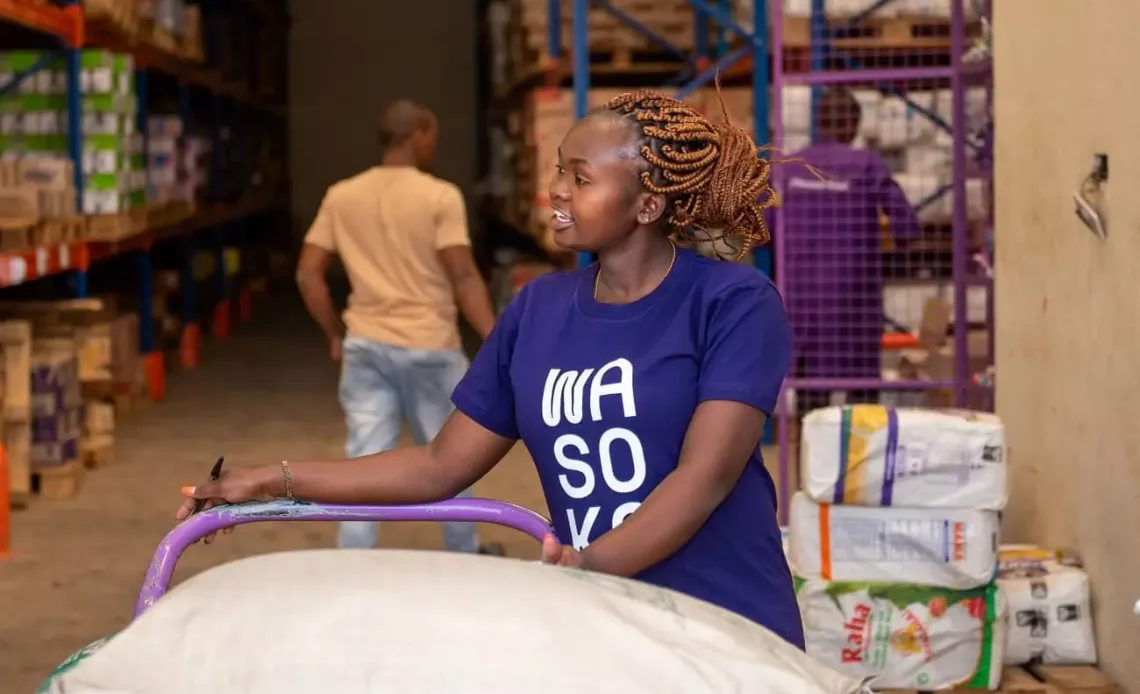
Wasoko has announced its expansion into the Democratic Republic of Congo (DRC) leveraging its existing ecommerce hub in neighboring Rwanda. With the announcement marking the startup’s second country expansion this year after launching its Zambia operations in May 2023, it forms the latest phase of its mission to drive robust growth for local businesses across Africa.
Wasoko has expanded its market coverage to serve small businesses in Goma, the capital of DRC’s North Kivu province. This has been facilitated through access to special cross-border trade zones with the support of the Rwandan government as part of its wider drive to foster regional economic integration. Through the initiative, Wasoko joins a select group of businesses enabling cross-border business to drive the integration of the DRC into the East African Community as its newest member country while supporting economic growth, job opportunities and sustainable development across the region.
Since its expansion into Rwanda in 2019, Wasoko’s revenues have skyrocketed from $2m its first year of business to $48mn in 2022. To-date, the platform currently serves over 5,000 informal retailers in Rwanda alone. Given its performance in Rwanda, Wasoko is equally optimistic to leverage its existing infrastructure to drive growth for small businesses in neighbouring DRC.
Speaking on the launch, Daniel Yu, Founder and Global CEO at Wasoko, says, “As one of Africa’s largest countries, the DRC presents a substantial market opportunity for Wasoko. Despite a rapidly growing population of nearly 100mn people with increasing purchasing power, the country’s significant infrastructural challenges have placed huge limitations on its e-commerce sector, which presents a vastly untapped opportunity.”
“However, through our cross-border logistical capabilities, established platform and extensive product range, we strongly believe we’re firmly positioned to fully unlock this potential and ultimately become the market leader in the DRC’s B2B e-commerce space. As we move ahead, we look forward to building crucial relationships with local, on-the-ground stakeholders and tailoring our traditional customer-centric approach to align with the unique needs of the Congolese population.”
Following Wasoko’s expansion to the DRC, the company plans to replicate this model across other regions across Africa. This is part of its long-term vision to strengthen its Pan-African presence as well as empower local businesses and connect African consumers with a diverse range of products and services.
Philip Lucky, Acting Chief Investment Officer, Rwanda Development Board, says “The Government of Rwanda is pleased with Wasoko’s expansion to the DRC. It joins Rwanda’s success stories of its proof-of-concept strategy, which allows investors to set up and test their solutions in Rwanda before scaling to the region. We remain committed to improving Rwanda’s ICT & Innovation eco-system in order to enable investors and startups to thrive.”
Since launching in 2016, Wasoko has pioneered the development of innovative technology to address the supply chain inefficiencies faced by millions of local shop owners in Africa’s informal retail sector. With an existing presence across Kenya, Tanzania, Rwanda, Uganda and Zambia, it has amassed a huge network of over 220,000 informal retailers and delivered more than 5mn orders to-date. Wasoko’s expansion marks the latest milestone for the company, which raised a $125mn Series B round – the largest venture financing round ever raised for a non-fintech startup in Africa – in March 2022 and was assessed by the Financial Times as Africa’s Fastest Growing Company last year.
Through Wasoko’s mobile app, shop owners can purchase goods from manufacturers and distributors at competitive prices based on supply and demand as well as receive real-time tracking data on sales, business insights and market trends. The platform has also built an end-to-end logistics process across areas including procurement, distribution, financing and technology, enabling Wasoko to deliver best-in-class fulfilment and merchant engagement rates.

